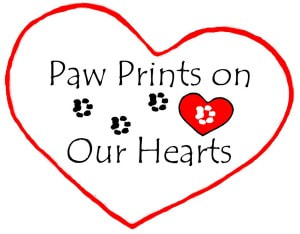 Many behavioral problems can occur with our animals. This includes a wide array of issues, from “accidents” on the floor, digging holes in the yard, and growling or snapping at other people or animals. Their behavior may be aggressive, destructive or suddenly unusual. Since many of us are unable to talk to our animals, they have to do something to get our attention. It is always important to begin by determining if the root of the problem is physical, emotional or mental. Having an exam by the vet is a recommended place to start. For example, a housebroken animal that is suddenly having accidents on the floor may have a physical problem, such as a bladder infection. It could also be a mental or emotional issue. This may also be true for an animal who suddenly snaps or bites. They could be in pain, and are crying out for help, or even experiencing great emotional stress. Our animals can be our mirrors, healers, and teachers who are often here to help us learn lessons. When there are sudden changes in behavior it can take some time and willingness to determine the cause. It may seem surprising that even acting out behavior can sometimes be done out of love for us, for in their unconditional love they are wanting to help us change, learn a lesson, and teach us something about ourselves which would help us in our growth, and perhaps our happiness. Remember that animals are like energy sponges. They pick up on all that is going on in the home, whether home is with one person or more, and one animal or more. If we allow it, we can learn much about ourselves from them. ANIMALS AS MIRRORS, TEACHERS AND HEALERS Let us begin by looking at this concept that animals are our mirrors, or it could also be stated that they are a reflection of an aspect of us. If we have several animals in the home, then each one reflects an aspect of us. I see this so clearly with the animals who are with me. One of my animals, a male cockatiel who has now crossed over, became very demanding and loud. I could see that there was a part of me that was that way with myself, including my internal dialogue, which could be relentless. Bojo, who is very gentle and loving, reflects that aspect of me. Sunshine, who can insist on getting what he wants, and yet has a very loving side, also mirrors that in me. Hallie, my female cockatiel, reflects my inner strength, for I have seen her go through several painful and stressful challenges and move through these issues with great resiliency. One of my cats, Bojo, is a gentle loving soul. A dear friend refers to him as the Buddha. Bojo grounds energy in the home, and being grounded has been a challenge for me. As a child my coping mechanism in my home, with its own unique family dynamics, was to check out. Some would call it dissociate. Bojo often sits and stares at me with his soulful eyes. He is reminding me to drop into stillness and get grounded. My natural tendency, although this is changing, is to be on the go. Imagine the love that he has in his desire to do this. Bojo does have one behavior that has been a challenge for me. He is right there when I step into the kitchen, often coming in from another room. He is also behind my foot. So this gentle soul has had his tail stepped on a few times, and yelped in pain. Of course I feel very bad about this. One day I asked him, “Bojo, why do you come up behind me, knowing that I may not see you, and again you get stepped on.” I told him I thought he was teaching me patience. Happily I can report considerable improvement in this area of my life. He said, “No, I’m trying to teach you persistence.” I laughed, because both are indeed true. Bojo also acts as a mentor and a gentle playmate for Sunshine, a beautiful orange tabby who has the ability to make me laugh at his antics. If Sunshine were a human he might be described as a bit of a rogue. I found him out on the streets, a big Tom cat who could definitely hold his own. He was quite scruffy, with beautiful eyes that pulled at my heart strings. I know now that he adopted me. Sunshine did not receive the love he needed as a kitten, and was abandoned and kicked around by a male person sometime before we met. When he finally “moved in”and spent time in my home I noticed that he eventually became jealous of the attention my 2 birds received, in particular my male bird, who had become more demanding over the years. My dear Murphy has now crossed over. One day, as I was spending time with Murphy’s mate, Hallie Ariel, Sunshine came up and bit my leg. My initial reaction was that this is totally unacceptable, yet I knew I did not want to go into anger. However, I also knew that Sunshine was needing more attention from me, and I am making a great effort to do that. After listening to the wise words of a friend I began making this an even greater focus. Sunshine is no different from many of us. It is wonderful and uplifting to feel loved and appreciated. The other gift that he has brought into my life is that of taking time to play, and move out of busywork. He is teaching me to me more flexible, and to learn to play when he wants to play. When behavioral issues arise, after ruling out any physical problems we need to determine what the issue is. Animals are generally pleased to be asked, for in reality it lets them know that we care. The problem can sometimes be solved by simply asking the animal what they need. Our animals often have a great deal of wisdom, often concerning what would be best for us. An animal that I connected with recently told me that his person’s partner was not a good relationship for her. In this case the person was aware of it, had set some boundaries, and would end the relationship if changes did not occur. An animal may express anger, and other upsetting emotions, by having “accidents” on the floor. WHY ANIMALS ACT OUT If we have ruled out that there is no physical problem, then we know that there is most likely an emotional issue involved when an animal is acting out with their behavior. If there is stress and tension between the people living with the animals, that stress can cause animals to act out in their own way. Remember that they sense the energy and emotions around them, so they are fully aware that all is not harmonious. They are no different from children, who have a tendency to act out when there is not love and harmony in the home. Any emotion or situation that we ourselves would consider stressful can create similar emotions for our animals, thus leading to a behavioral problem. Remember, unless we learn to communicate with them they have no other way to tell us. This can include feeling abandoned, neglected, insecure, fearful or jealous. Certainly it would include abuse. The list can go on and on. In multi-animal homes there can be conflicts with competition and territory. There are animals who will tell you, if given an opportunity, that they want to be the only animal in the home. There are others who do quite well with a family of other animals. It can be easy to misinterpret their behavior. If an animal makes messes on the floor when we go out of town it could be easy to assume that they are angry with us. If given a chance to tell us we may hear an entirely different reason. For example, there could be extreme fear that we are not coming back, and they are marking their territory as a way of claiming it. There are times when an animal communication session by itself will resolve an issue. This would include asking the animal why it is behaving a certain way, including whether something is bothering them. Again this can be physical, mental or emotional. Sometimes asking what they need and what we can do to help is all that is required. In other situations the solution may be more complex. We may be required to determine what they are attempting to teach us, and have the willingness to do what is needed for our growth and change. As we begin this process we will begin to see changes in them. We will also have a deepened appreciation and awareness of their unconditional love for us.
0 Comments
 Connecting with animals who have crossed over has always been a very rewarding experience. It has also brought much comfort to many of the dear clients I have helped in this area. Although, my dear readers, the loss of a beloved animal companion can be extremely painful, it can be very helpful to understand how animals view the death experience. Many of us in the Western cultures hold a particular view that is quite the opposite of those from different areas of the world and certain spiritual or religious beliefs. For many there is the belief that death is the end of life or of existence. Let us say that a person has a missing animal and is questioning their whereabouts, or perhaps if they are even still alive. If I were to simply ask the animal if it was alive, and it had indeed crossed over, the animal would say yes. That is because there is no ending to its existence. It is in the cycle of life, which includes birth, death, the afterlife and the cycle repeats. This is of course a very simplistic explanation. It is simply that they are not in the physical body as we knew them. They, however, feel quite alive and often quite joyous. It is comforting to know that animals do not fear death. They have an amazing capacity for understanding this cycle of life. That does not mean that it is always easy for them to leave us. They are in our lives for many reasons, including teaching, healing and assisting us in learning lessons. They are amazingly intuitive and aware, and they come from a place of unconditional love. We could say that they are like energy sponges. What does this mean in simple terms? They often know, for example, what we could do to help ourselves. They understand our feelings and will sometimes even take on our health issues. When they know that we need them, on some level, they may often hang on to life for us. When an animal has been suffering for a lengthy time we may want to give them permission to cross over when they are ready. We will want to tell them that, although we will go through our grieving, we will be able to let them go. Of course we choose our own words, and what feels right for us. In the recent past one of my birds suddenly became very ill. Fortunately there was an Avian specialist available to see her that day. She had some serious medical issues, and I did some intensive nurturing and nursing for a few months in order for her to regain her health. That first night, after coming home from her vet visit, I had a talk with her. I let her know how much I loved her and hoped that she would heal and continue to be with us. However, I told her that if it was her time to “go home” I would understand and honor that. I must say I am delighted that as I write this I have a happy and healthy bird who is still with me. It is also interesting to know that an animal may look physically ready to go. They appear to be suffering greatly, yet they are not yet ready to leave. Sometimes an animal wants a little more time before leaving the earth. For example, a friend’s cat, who was wasting away physically, needed a couple of weeks to connect with the sights, smells and the warmth of the sun outside that she so dearly loved. When I connected with her she told me she wasn’t quite ready. She gave me a clear sign on how she would let her person know when it was time. She would simply place her paw on her friends’s hand. My dear friend said that for a week she was afraid to put her hands near her. Within a couple of weeks her animal friend was ready. Arrangements for a vet to come to the home had already been made. Many times other animals in the home will want to come over and say goodbye. It is helpful for them to understand what is going on. It can appear that some animals do not have a deep connection with each other. It is amazing how that may not be the case. Years ago one of my birds died. I simply found her dead in the morning. It is not uncommon for birds and other animals to hide their illness, because in the wild it is necessary to do that. I was devastated and grief stricken. That evening two close friends came over and we held a service for her. We then buried her in the back yard. You may be fascinated to hear that after the burial two of my cats sat vigil outside, one on each side of where she was buried. The animal’s awareness of what is going on is truly remarkable. In summary, it can help us during our grief to remember that our animals understand the cycle of life. For them there is no fear around leaving their body. Sometimes we must move into the space of letting them know that we accept this, at least on some level, and honor their process.
|


 RSS Feed
RSS Feed
